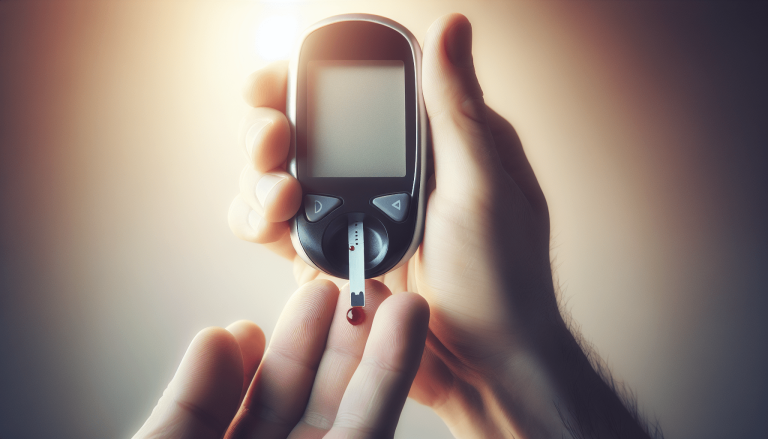How Long Can You Expect To Live With Type 2 Diabetes?
living with type 2 diabetes can bring many questions to mind, particularly about life expectancy and quality of life. In this article, “How Long Can You Expect To Live With Type 2 Diabetes?” we explore the factors that influence longevity and health outcomes for those managing this condition. By understanding the impact of lifestyle choices, medical advancements, and proactive healthcare, you can gain valuable insights into what contributes to a healthier, longer life. Join us as we delve into the crucial elements that can help you navigate your journey with type 2 diabetes with confidence and optimism.
How Long Can You Expect To Live With Type 2 Diabetes?
Have you ever wondered how long you can expect to live if you’re diagnosed with type 2 diabetes? It’s a question that often brings both concern and curiosity. Living with type 2 diabetes can indeed feel daunting, but understanding its impact on your life expectancy can help you manage both your health and your expectations.
Understanding Type 2 Diabetes
Type 2 diabetes is a chronic condition that affects the way your body regulates and uses sugar (glucose) as a fuel. It is characterized by insulin resistance, where your body’s cells do not respond correctly to insulin, thereby leading to elevated blood sugar levels.
What Causes Type 2 Diabetes?
Type 2 diabetes is mainly a result of genetic and lifestyle factors. If you have a family history of diabetes, you’re more likely to develop it. However, lifestyle choices like an unhealthy diet, lack of physical activity, and obesity are significant contributors.
Symptoms and Diagnosis
Recognizing the symptoms early can help manage the condition better. Common symptoms include increased thirst, frequent urination, hunger, fatigue, and blurred vision. If you experience these symptoms, it’s advisable to consult a healthcare provider. Diagnosis usually involves blood tests to measure your blood glucose levels.
Life Expectancy with Type 2 Diabetes
So, how long can you expect to live with type 2 diabetes? The answer varies and depends on several factors, including how well you manage the condition, your overall health, and whether you have other medical conditions.
Impact of Early Diagnosis
Early diagnosis plays a critical role in managing type 2 diabetes effectively. The sooner you know about the condition, the sooner you can start making the necessary lifestyle and dietary changes to keep it in check.
Role of Lifestyle Changes
Lifestyle changes can significantly improve your life expectancy with type 2 diabetes. A healthy diet, regular exercise, quitting smoking, and limiting alcohol intake can make a substantial difference. These changes can help control your blood sugar levels, reduce the risk of complications, and improve your overall quality of life.
Importance of Medication and Monitoring
Proper medication and regular monitoring are essential for managing type 2 diabetes. Skipping medication or not following your treatment plan can lead to severe complications that may shorten your life expectancy.
Comprehensive Management and Medical Advances
Advancements in medical science, including new medications and monitoring technologies, have made it easier to manage type 2 diabetes today. Experts recommend a comprehensive approach that includes regular check-ups, medications, lifestyle changes, and psychosocial support.

Complications and Their Effect on Life Expectancy
Like many chronic conditions, type 2 diabetes can lead to several complications if not managed properly. These complications can significantly affect your life expectancy.
Cardiovascular Diseases
People with type 2 diabetes are more prone to heart diseases and stroke. High blood sugar levels contribute to the build-up of fats in the arteries, which can lead to cardiovascular problems.
Kidney Damage (Nephropathy)
Diabetes can damage the kidneys over time, eventually leading to kidney failure. Regular monitoring of kidney function and managing blood sugar levels can help mitigate this risk.
Nerve Damage (Neuropathy)
Prolonged high blood sugar levels can damage the nerves, leading to neuropathy. This can affect various parts of your body, causing pain, numbness, and other complications.
Eye Damage (Retinopathy)
Diabetes can affect your vision and even lead to blindness if not managed properly. Regular eye check-ups can help in early detection and treatment of diabetic retinopathy.
Table: Common Complications and Mitigation Strategies
| Complication | Description | Mitigation Strategies |
|---|---|---|
| Cardiovascular Diseases | Increased risk of heart disease and stroke | Regular exercise, healthy diet, medications |
| Kidney Damage (Nephropathy) | Damage to the kidneys, potentially leading to kidney failure | Regular monitoring, controlled blood sugar levels |
| Nerve Damage (Neuropathy) | Damage to nerves, causing pain and numbness | Regular monitoring, pain management, medications |
| Eye Damage (Retinopathy) | Impaired vision or blindness | Regular eye exams, controlling blood sugar levels |
Role of Age and Genetic Factors
Age and genetics play a crucial role in determining how long you can live with type 2 diabetes. Understanding these factors can help you better manage the condition.
Age-Related Risks
Older adults are more susceptible to the complications of type 2 diabetes. As you age, it’s essential to keep a close eye on your diabetes management plan and adjust it as necessary.
Genetic Predispositions
If you have a family history of diabetes, you are at a higher risk of developing the condition. Understanding your genetic predisposition can help in taking preventive measures and making informed lifestyle choices.

Psychological Impact and Quality of Life
Living with type 2 diabetes can also affect your mental health and overall quality of life. Addressing these aspects is vital for holistic diabetes management.
Mental Health Considerations
Type 2 diabetes can lead to stress, anxiety, and depression. Seeking support from mental health professionals and joining support groups can be beneficial.
Quality of Life
Effective diabetes management can enable you to lead a fulfilling life. Engaging in activities you love, maintaining strong social relationships, and focusing on your mental well-being can significantly enhance your quality of life.
Personal Stories of People Living with Type 2 Diabetes
Hearing from others who are also managing type 2 diabetes can provide valuable insights and inspiration.
Story of John
John, a 55-year-old teacher, was diagnosed with type 2 diabetes five years ago. He made significant lifestyle changes, like adopting a healthy diet and regular exercise program. Today, John feels healthier than ever and manages his condition effectively.
Story of Maria
Maria, a 60-year-old retired nurse, faced numerous challenges after her diagnosis. With the support of her healthcare provider, she now follows a comprehensive management plan that includes medication, healthy eating, and regular monitoring. Maria continues to enjoy her retirement and spends quality time with her grandchildren.
Practical Tips for Managing Type 2 Diabetes
Managing type 2 diabetes involves more than just taking medication. Here are some practical tips to help you manage your condition effectively:
Healthy Eating
Focus on a balanced diet rich in fruits, vegetables, whole grains, and lean proteins. Avoid sugary drinks, refined carbs, and high-fat foods.
Regular Exercise
Aim for at least 30 minutes of moderate-intensity exercise most days of the week. Activities like walking, swimming, and cycling can be beneficial.
Medication Adherence
Always take your medications as prescribed by your healthcare provider. Skipping doses can lead to complications.
Regular Monitoring
Regularly monitor your blood sugar levels and keep track of the results. This helps in making necessary adjustments to your treatment plan.
Stress Management
Practice stress-relief techniques like meditation, yoga, or deep-breathing exercises. Managing stress is crucial for controlling blood sugar levels.
Regular Check-ups
Visit your healthcare provider regularly for comprehensive check-ups. This helps in early detection and management of potential complications.
Conclusion
Understanding how long you can expect to live with type 2 diabetes starts with acknowledging the numerous factors that influence it. From early diagnosis and lifestyle changes to effective management of complications, every step you take toward better health can potentially enhance your longevity and quality of life.
In summary, while type 2 diabetes is a chronic condition, it doesn’t necessarily mean a reduced life expectancy. By adopting a holistic approach to management that includes medication, lifestyle modifications, and emotional well-being, you can live a long, fulfilling life despite the diagnosis.
Remember, the journey to health is a marathon, not a sprint. With dedication, you can manage type 2 diabetes effectively and enjoy life to the fullest. Feel free to consult your healthcare provider to tailor a management plan that suits your unique needs. So, here’s to a healthier, happier you!





